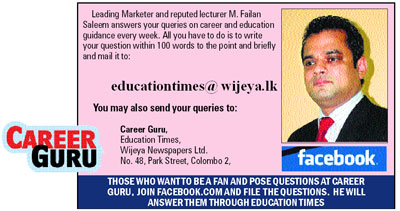I get many questions from our readers with regard to key areas of focus when planning their career, making the right decisions and building on their vital experiences.
So what is career planning?
In my view career planning is a lifelong process, which includes choosing an occupation, getting a job, growing in our job, possibly changing careers, juggling with two careers, going it by yourself and eventually reinventing yourself or retiring.
The process shown below highlights critical best practices across the best of sites and expert advice. In deciding on a career there is no one size fits all strategy, sometimes you may end up in a career by sheer accident. The important factor is to identify and prioritize, that is identify, exemplify and amplify.
The choice of selecting an occupation may happen once in our lifetimes, or is more likely to happen several times as we first define and then redefine ourselves and our goals.
Career Planning: A five step process
The career planning process is comprised of five steps. One might seek the services of a career development professional to help facilitate his or her journey through this process. Whether or not you choose to work with a professional, or work through the process on your own is less important than the amount of thought and energy you put into choosing a career.
Assessing self
Gather information about yourself, this mainly includes your value system, your interests and most importantly your personality or better yet, are you right brain or left brain, consider examples of working for a charity as opposed to working for an ad agency or working for a consultancy house or even exploring as a basketball coach, all these decisions may involve first assessing your self. Areas would include:
Interests
Values
Roles
Skills/Aptitudes
Preferred Environments
Developmental Needs
Your realities
Generating options
Get more specific information after you narrow down your options by:
Exploring the occupations in which you are interested, research the industries, e.g. the insurance or financial services industries in which you would like to work or industries which are attractive, easy to find jobs, research the labour market e.g. areas such key account management, customer service, project management.
There may be gap areas in the market. A great option to consider is job shadowing. Even if you have to provide it free, job shadowing or part time work, internships, or volunteer opportunities, can be a great spring board to build your CV and get into the job search funnel.
Matching
During this process, you will:
- Identify possible occupations, e.g. you can start in sales or as a management trainee
- Evaluate these occupations, many organizations take in management trainees without a specific progression agenda, so watch out
- Explore alternatives, e.g. getting into consulting companies, research agencies or ad agencies to get that vital exposure
- Choose a short term and a long term option; short term- one to two years, long term- three to five years.
Based on the last point I see many getting stuck in companies for three years or more, not taking the initiative to build a momentum. If the organization does not have a plan for you, better get out soon.
Preparation
This would include writing your resume, preparing for interviews, e.g. the classic unprepared interviewer's trap question "Tell me about yourself". Writing down your greatest challenges and how you achieved success or know where you failed.
Action
You will develop the steps you need to take in order to reach your goal, for example: if needed
- Developing a job search strategy, e.g. logging your resume into head hunting agencies, online job search sites as well as your expert friends' networks
- Gathering company information, e.g. if you plan to join the mobile industry you need to do your background check about the industry and companies.
- Composing cover letters specific to each job
- Training and education, e.g. in presentation techniques, communication.
- If you need further clarification, join me on Facebook.
|


